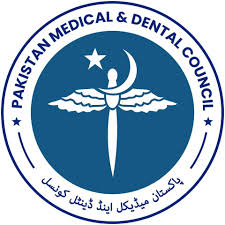Evaluation of Risk Factors for Carcinoma Breast in Pakistani Women
Keywords:
Breast cancer, risk factorsAbstract
Objective: To evaluate the risk factors for breast cancer in women attending OPD Breast Clinic, Sir Ganga Ram Hospital, Lahore and compare the local with the western risk factors.
Method: A cross-sectional study was conducted at OPD Breast Clinic from January 2008 to June 2013. A total of 200 females were included. Diagnosis of breast cancer was based on histopathological findings. Age at presentation, stage and type of carcinoma breast, age at menarche, age at menopause, marital status, age at first full term pregnancy, parity, breast feeding history (12 months at least), use of oral contraceptives (regular uptake for at least one year), family history of breast cancer and other cancers (first degree relatives), smoking (20 pack years), were evaluated as risk factors for breast cancer. Demographic data and information related to risk factor were collected employing a short structured proforma.
Results: The mean age of diagnosis was 45 years. Presentation at advanced stage was most common (61%) and Invasive Ductal CA was the most common type (95%). 99% of the patients were married, 93% parous, and 96% patients had age <30 years at first full term pregnancy. 78% had a history of breast feeding for 12 months. Early menarche (≤12 years) and late menopause (≥50 years) were seen 20% and 3.6% of patients respectively. Only 10% of patients had used oral contraceptive pills. 90% were non smokers, and 35% were obese with BMI>30. Family history of breast cancer was +ve in 12% of patients and 13% of patients had first degree relatives affected from other types of cancer.
Conclusion: In Pakistan, the females presents with breast cancer at a younger age (<50 years) and with an advanced disease (mostly Stage III). Female population here manifests low levels of traditional risk factors because they usually exhibit high fertility levels, early age at first pregnancy, multiple births, and extended breast-feeding as observed in patients attending Breast Clinic, SGRH. So the cause can be genetic susceptibility in females or environmental factors which are yet to be looked into.
Downloads
Published
How to Cite
Issue
Section
License
The Journal of Fatima Jinnah Medical University follows the Attribution Creative Commons-Non commercial (CC BY-NC) license which allows the users to copy and redistribute the material in any medium or format, remix, transform and build upon the material. The users must give credit to the source and indicate, provide a link to the license, and indicate if changes were made. However, the CC By-NC license restricts the use of material for commercial purposes. For further details about the license please check the Creative Commons website. The editorial board of JFJMU strives hard for the authenticity and accuracy of the material published in the journal. However, findings and statements are views of the authors and do not necessarily represent views of the Editorial Board.

















